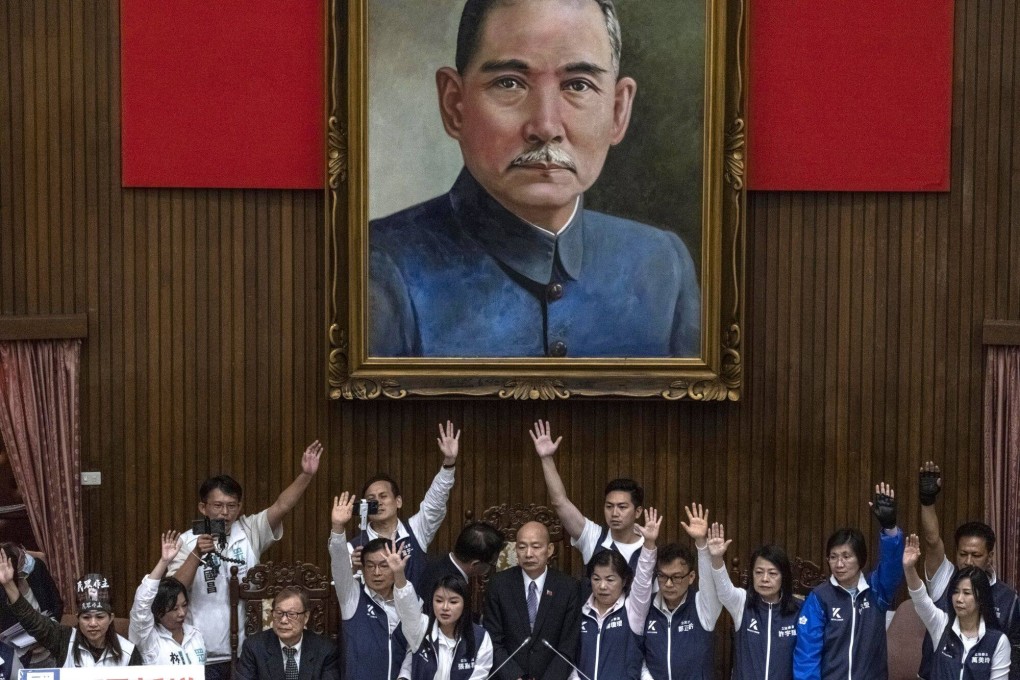Divided legislature and mainland Chinese forces ruin honeymoon for Taiwan’s William Lai
- Early opposition successes point to potential trouble for DPP administration, from cross-strait policy and military budgets to falling popularity
- The Taiwanese leader’s first week in office has been marked by legislative brawls and an angry response from Beijing to his opening remarks

Even before Monday’s presidential inauguration, the Taiwanese opposition scored a victory in the legislature, mandating that Lai deliver an annual address on the state of the island, despite efforts to block it by his ruling Democratic Progressive Party (DPP).
Lai assumed office against a backdrop of reported intense exchanges between legislators – with booing and even physical altercations – during an adjournment of the May 17 session, as opposition parties pushed through bills targeting his administration.
It was all part of a concerted effort by the main opposition Kuomintang (KMT) and the smaller Taiwan People’s Party (TPP) – which together form the legislative majority – to increase scrutiny of government agencies and officials.
Since losing its legislative majority earlier this year, the independence-leaning DPP has faced successive setbacks in the advance of crucial legislation, as well as an inability so far to stem opposition-led reforms.
Analysts cautioned that an effective opposition could undermine voter perceptions of the administration, and Lai’s public support might also steadily dwindle over the next four years if these issues were not addressed effectively.
